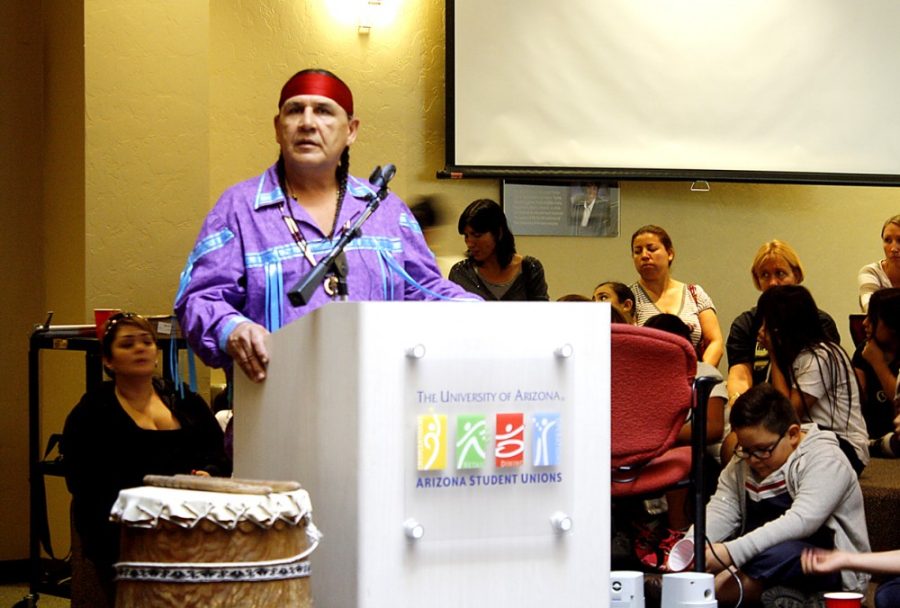UA and community speakers discussed what being human means to them and how they have felt dehumanized in their lives at a symposium on Tuesday.
The first-ever Tlakatl: What it Means to be Human symposium ran all day Tuesday at the Student Union Memorial Center. Speakers discussed humanitarian issues, including the personal effects of immigration laws and discrimination against Native Americans.
Dulce Juarez, the immigrants’ rights project coordinator of the American Civil Liberties Union of Arizona, said being dehumanized means that people feel unseen.
Juarez spoke about the importance of sharing personal stories with others to better understand people and feel closer as a community.
“If we want to be human, we must first think about the moments where we felt dehumanized,” Juarez said, “and then reflect on how we can move forward to be able to treat others as humans and also to be seen as people.”
Overcoming the struggles of dehumanization, Juarez said, is not about helping others to make yourself feel good, but about learning about the struggles of others and standing by their side. This issue, which especially affects minorities and immigrants, is particularly relevant to the UA because of its proximity to the border, she added.
Cynthia Diaz, a freshman studying pre-public policy and Latin American studies, gave the welcome speech for the symposium.
Diaz and her mother presented together about immigration issues. Her mother, who lives in Mexico, called in via Skype.
“[For] families like mine … the only way to communicate is through Skype,” Diaz said. “It’s through a screen, which is not human and it’s not fair, but it’s reality.”
Keynote speaker Jake Edwards, a member of the Onondaga Nation Council of Chiefs, said he hopes to educate people about the importance of reconnecting with the earth and giving thanks for what is on it. Edwards went on to speak about how his indigenous government was abused by the colonizing government of the land.
“After [the colonizers] got fat by the indigenous people on how to survive on the land, they started creating policy on how to control the indigenous people,” Edwards said. “That’s a violation of human rights.”
The government was abusing his people by taking control of their land and using belittling terms, Edwards added.
“‘Tribe’ is a government-issued word to make smaller the peoples’ voice,” Edwards said. “Ours is a nation — it’s always been a nation — and we refuse to call each other tribes.”
Diaz said that, ultimately, to be human is to be free and happy, but that immigration issues in the country make her definition of being human unrealistic.
“There’s a lot of discrimination with every race, every class, every little thing,” Diaz said. “To be human … is to be colorblind, to not see the economy level, but just to treat everyone fairly.”
– Follow Jazmine Foster-Hall @Jazz_Foster









